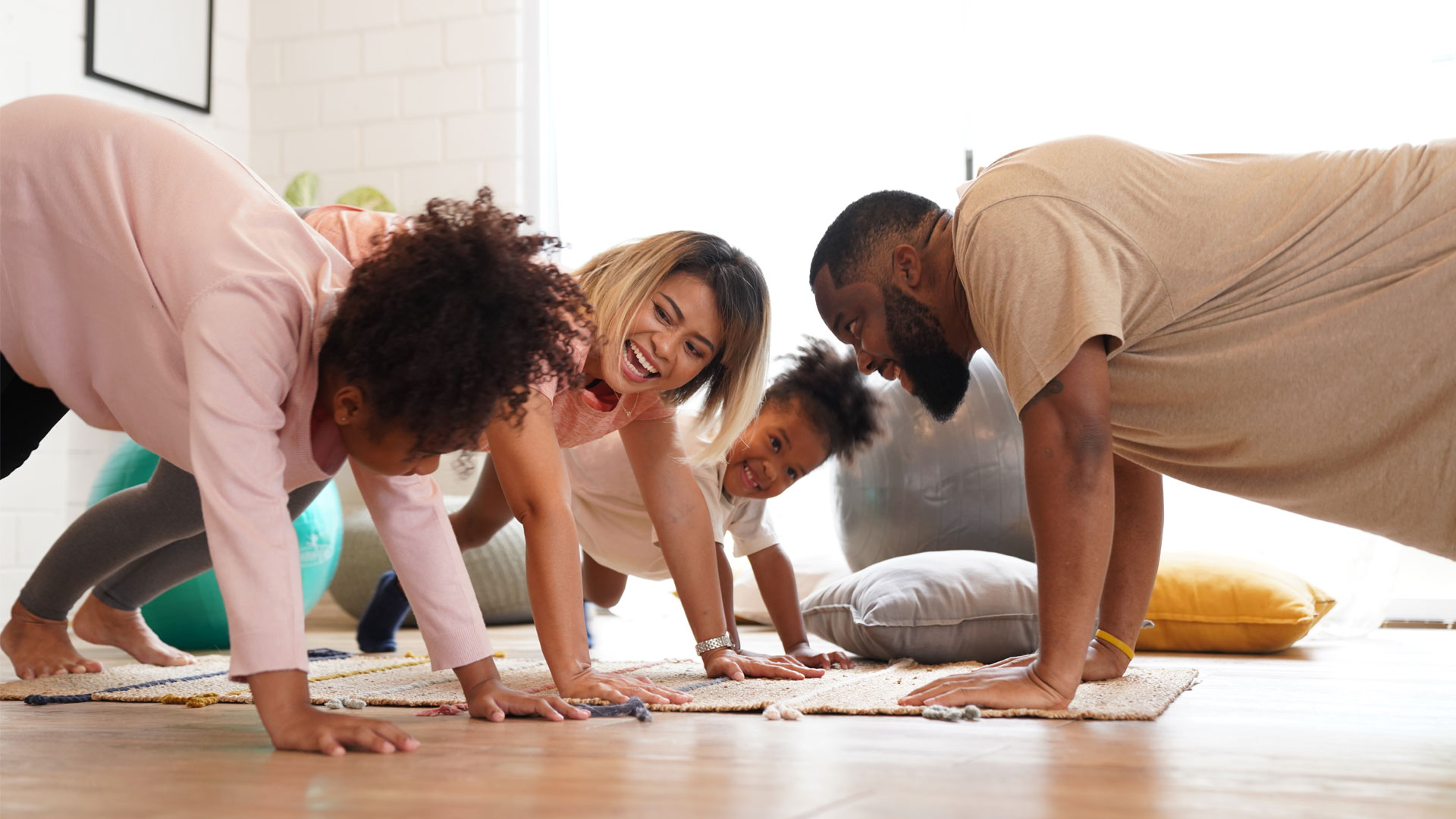Regular physical exercise is great for your body and mind. It helps control weight and fight off health issues. It also boosts your mood, energy, and sleep quality. Plus, it can even make you live longer.
The U.S. Department of Health and Human Services suggests adults do at least 150 minutes of moderate exercise or 75 minutes of vigorous exercise weekly. They also recommend strength training for major muscles at least twice a week. Adding physical activity to your daily life, like walking fast, biking, or doing chores, can greatly improve your health and happiness.
Key Takeaways
- Regular physical exercise offers numerous benefits for both physical and mental health.
- Exercise can help manage weight, reduce the risk of chronic diseases, and improve mood and energy levels.
- The U.S. Department of Health and Human Services recommends at least 150 minutes of moderate aerobic activity or 75 minutes of vigorous aerobic activity per week.
- Incorporating physical activity into daily routines, such as through brisk walking or household chores, can significantly enhance overall well-being.
- Engaging in physical exercise can lead to better sleep patterns and improved.
Physical Exercise – The Key to a Healthier Life
Adding regular physical activity to your day is key to a healthier life. It helps with weight management and fights chronic diseases. The health benefits of exercise are many and proven.
What are the Benefits of Regular Exercise?
Regular exercise helps control weight and fights diseases like heart disease and diabetes. It also boosts mental health by reducing stress and depression. Plus, it increases energy and improves sleep.
- Endurance activities should amount to at least 150 minutes per week.
- Strength exercises should be done for all major muscle groups at least 2 days per week.
- Balance exercises can significantly help prevent falls, a common issue in older adults.
- Flexibility exercises improve mobility and can help with everyday tasks like tying shoes or driving.
Incorporating Physical Activity into Your Daily Routine
To get the most benefits of physical activity, adults should aim for 150 minutes of moderate aerobic activity or 75 minutes of vigorous aerobic activity weekly. They should also do strength training for major muscle groups at least twice a week. Adding small activities like taking the stairs or doing chores can also make your life more active and healthy.
“Lifelong exercise is associated with delaying the onset of 40 chronic conditions/diseases.”
By making physical exercise a regular part of your day, you unlock many health advantages. You’ll enjoy a more vibrant and energetic life.
Exercise and Weight Management
Regular physical activity is key for managing weight. It burns calories, helping you lose or keep a healthy weight. The more active you are, the more calories you burn.
Adults should aim for 150 minutes of moderate activity weekly. Or, they can do 75 minutes of vigorous activity. They should also do muscle-strengthening activities 2 days a week. Regular exercise boosts your health and helps with weight control.
| Activity | Calories Burned per Hour |
|---|---|
| Brisk Walking | 370-460 |
| Biking | 370-460 |
| Dancing | 370-460 |
| Gardening | 370-460 |
| Jogging | 580-730 |
| Swimming | 580-730 |
| Playing Football | 580-730 |
| Skiing | 740-920 |
| Racquetball | 740-920 |
| Running (7-minute mile pace) | 740-920 |
The table shows how different activities burn calories. By choosing various exercises, you can burn more calories. This helps with weight loss or maintenance.
To keep weight off, you need to stay active. More activity means burning more calories. Doctors are finding ways to get people moving more for better health and weight control.
Exercise and Disease Prevention
Regular exercise is key in fighting off many chronic health issues. It boosts the heart, helps control blood sugar, and cuts down inflammation. This makes it a powerful tool against a wide range of chronic illnesses.
How Exercise Combats Chronic Health Conditions
Studies show that exercise can lower the risk of heart disease, stroke, and high blood pressure. It also helps prevent type 2 diabetes, some cancers, and even brain decline. For instance, the Lancet’s PURE study in 2017 showed the benefits of exercise for disease prevention in 130,000 people worldwide.
Exercise also helps those with chronic illnesses like arthritis or Parkinson’s. A 2012 review in Obesity Reviews found that physical activity improves health in obese people. This highlights the exercise benefits for health.
But, a worrying trend is growing. The World Health Organization says 31% of adults and 80% of teens don’t get enough exercise. If this keeps up, 35% of adults might not meet activity guidelines by 2030.
“The global estimate of the cost of physical inactivity to public health care systems between 2020 and 2030 is about US$300 billion (approximately US$27 billion per year) if levels of physical inactivity are not reduced.”
It’s vital to tackle this issue and push for more exercise for disease prevention. Doing so can greatly improve public health and ease the load on healthcare systems globally.
Exercise for Mental Well-being

Regular exercise does more than just keep your body fit. It also boosts your mental health and emotional well-being. Studies show that active people have lower stress levels than those who are less active. In fact, being active daily can lower your risk of depression and dementia by 20% to 30%.
Exercise releases endorphins, which are natural mood-boosters. This can make you feel better and help manage depression and anxiety. Plus, doing activities you love, like walking or dancing, can make exercise even more beneficial for your mind.
The Department of Health suggests adults aim for 2.5 hours of moderate activity weekly. That’s about 30 minutes a day, five days a week. Adding this to your daily routine can greatly support your mental and emotional health.
Regular physical activity can boost self-esteem and reduce stress and anxiety. It can also prevent mental health problems and improve life quality for those with mental health issues. Low-intensity aerobic exercise for 30–35 minutes, 3–5 days a week, for 10–12 weeks, is especially good for mood.
Exercise can be a great alternative treatment for depression and anxiety. It has few side effects and lets people manage their own health. Having social support can also keep you motivated and focused.
If you want to improve your mental well-being or manage mental health challenges, exercise is a powerful tool. By making physical activity a priority, you can enjoy many benefits for your mind and body.
Physical Exercise and Longevity
Many studies show that regular exercise can make you live longer and lower the risk of early death. It helps prevent chronic diseases, which are a big cause of death. Exercise boosts heart health, manages chronic conditions, and boosts overall well-being. This makes it easier to live a longer, healthier life.
Improving Your Chances of Living Longer
A big study with over 11,000 adult twins from Finland found something interesting. Those who were active or very active had a 15-23% lower risk of dying from any cause. Even after adjusting for other lifestyle factors, being sedentary still lowered mortality risk by up to 7%. This shows how big of an impact exercise can have on living longer.
The study also found that being too sedentary or too active sped up aging. This means finding the right balance of exercise is key to getting the most benefits for longevity.
Research also shows that mixing vigorous and moderate exercise can cut mortality by 35% to 42%. Even just doing the minimum amount of exercise can lower heart disease deaths by 22% to 31%.
It’s important to remember that exercise alone isn’t enough for a long life. A healthy diet, not smoking, and avoiding alcohol and drugs are also crucial. A balanced, healthy lifestyle is essential to get the most out of exercise and live longer.
Exercise for Better Sleep

Regular physical activity can greatly improve your physical and mental health. It also boosts your sleep quality. Studies show that exercise can make a big difference in these areas of life.
Exercise helps you fall asleep faster and sleep more soundly. It releases endorphins, which reduce stress and anxiety. A 2021 study found that exercise improves sleep in people with insomnia.
Exercise also enhances best function and intimacy. A University of Texas study found that activities like brisk walking or cycling improve blood flow. This leads to stronger erections for men and greater arousal for women. Strengthening pelvic floor muscles through exercises like Kegels can also improve orgasms for women and help men prevent premature ejaculation.
Research supports the positive effects of exercise on sleep and best health. This is due to swimming’s benefits, including improved endurance and blood flow. Couples who exercise together often feel more attracted to each other, strengthening their bond.
| Benefit | Research Findings |
|---|---|
| Improved Sleep Quality |
|
| Enhanced Function |
|
By adding exercise to your daily routine, you can enjoy many benefits. These include better sleep leading to a healthier and more fulfilling life.
The Cognitive Benefits of Physical Exercise
Regular exercise is good for more than just our bodies. It also boosts our brain power. Studies show that moving around can make our brains work better. This means we can switch tasks faster, plan better, and focus on what’s important.
Exercise can also slow down brain aging. It keeps our minds sharp and helps us think clearly as we get older. In fact, sitting too much can lead to a big drop in brain function.
Keeping Your Mind Sharp with Exercise
Adults need to move more to stay healthy. The goal is to do at least 150 minutes of moderate exercise a week. Or, do 75 minutes of hard exercise and also do muscle-strengthening activities two or more times a week. For older folks, it’s key to work on balance too.
Dog owners tend to walk more, which is good for them. Doctors also help by telling patients to exercise more. This can improve their health, including their brain function.
Exercise is great for our brains. It makes our brains more flexible and improves our mood. It even helps protect our brains from damage, though scientists are still learning how.
“Exercise induces structural and functional changes in the brain, leading to biological and psychological benefits.”
Studies show that exercise makes our brains grow and work better. It boosts the release of important chemicals like BDNF and IGF-1. These are key for brain health.
Exercise improves our thinking, memory, and ability to focus. It also helps prevent our brains from slowing down as we age. By staying active, we can keep our minds sharp and function well even when we’re older.
Also Read: What Are The Benefits Of A Daily Fitness Routine?
Conclusion
Regular physical exercise is great for both body and mind. It helps with weight control, prevents diseases, and boosts mood and brain function. An active lifestyle can greatly improve your health.
Adding different types of exercise, like cardio, strength training, and flexibility, to your day can bring many benefits. Whether it’s a quick walk, yoga, or a workout, staying active makes life better. It can even lower the risk of heart disease and some cancers.
Exercise is key to a healthy life. It not only makes you fit but also sharpens your mind, reduces stress, and lowers injury risk. As studies show, being active is essential for well-being and living longer. Even small changes, like taking the stairs, can make a big difference in your health and happiness may help exercise training activity may exercise session.
FAQs
Q: What are the different types of exercise?
A: The four types of exercise include aerobic exercise, anaerobic exercise, flexibility exercises, and balance exercises. Each type offers unique benefits and can be incorporated into a regular physical activity routine.
Q: What are the health benefits of physical exercise?
A: The health benefits of physical exercise may include improved cardiovascular health, better weight management, enhanced mental health, increased strength and flexibility, and a decreased risk of chronic diseases.
Q: How much physical activity is recommended for adults?
A: It is generally recommended that adults engage in at least 150 minutes of moderate-intensity aerobic exercise or 75 minutes of vigorous-intensity aerobic activity each week, alongside muscle-strengthening activities on two or more days a week.
Q: How can exercise help with mental health?
A: Regular physical activity has been shown to reduce symptoms of anxiety and depression, improve mood, and enhance overall mental well-being. Exercise can help release endorphins, which are natural mood lifters.
Q: What is the correlation between physical activity and exercise?
A: Physical activity encompasses all movement, while exercise is a specific form of physical activity that is structured and planned. Both contribute to overall physical fitness and well-being.
Q: What are the benefits of regular physical activity for older adults?
A: The benefits of regular physical activity for older adults may include improved balance and coordination, increased strength, better cognitive function, and a reduced risk of falls and chronic diseases.
Q: What types of exercise are best for weight loss?
A: Both aerobic and anaerobic exercise can be effective for weight loss. Activities such as running, cycling, and swimming (aerobic exercise) can help burn calories, while resistance training (anaerobic exercise) can build muscle mass, which may boost metabolism.
Q: How does exercise impact cognitive function?
A: Research suggests that regular physical exercise may enhance cognitive function, improve memory, and foster learning. The effects of physical exercise on cognitive performance are particularly noticeable in older adults.
Q: What is the best time to exercise for optimal benefits?
A: The best time to exercise may vary for individuals based on personal preferences and schedules. However, consistency is key; finding a time to exercise that fits into your routine will help maintain regular physical activity and reap the benefits of exercise.
Source Links
- https://www.mayoclinic.org/healthy-lifestyle/fitness/in-depth/exercise/art-20048389
- https://www.nia.nih.gov/health/exercise-and-physical-activity/real-life-benefits-exercise-and-physical-activity
- https://www.nia.nih.gov/health/exercise-and-physical-activity/four-types-exercise-can-improve-your-health-and-physical
